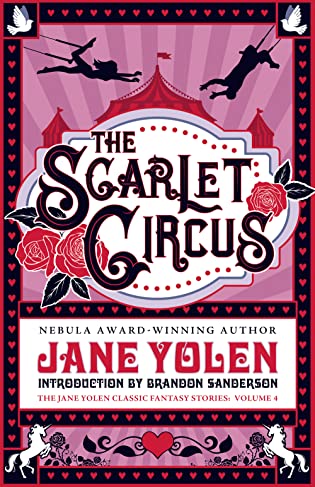 The Scarlet Circus
The Scarlet Circus by
Jane Yolen,
Brandon Sanderson Format: eARC Source: supplied by publisher via NetGalley Formats available: paperback, ebook
Genres: fairy tales,
fantasy,
fantasy romance,
Romance,
short stories Pages: 256
Published by Tachyon Publications on February 14, 2023
Purchasing Info: Author's Website,
Publisher's Website,
Amazon,
Barnes & Noble,
Kobo,
Bookshop.org,
Better World Books Goodreads The Scarlet Circus, the fourth volume in Yolen’s award-winning short fiction series brings you passionate treasures and unexpected transformations. This bewitching assemblage, with an original introduction from Brandon Sanderson, is an ideal read for anyone who appreciates witty, compelling, and classic romantic fantasy.
A rakish fairy meets the real Juliet behind Shakespeare's famous tragedy. A jewelry artist travels to the past to meet a successful silver-smith. The addled crew of a ship at sea discovers a mysterious merman. More than one ignored princess finds her match in the most unlikely men.
From ecstasy to tragedy, with love blossoming shyly, love at first sight, and even love borne of practical necessity―beloved fantasist Jane Yolen’s newest collection celebrates romance in all its glory.
My Review:
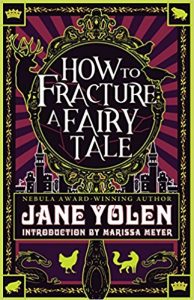 This ended up being my Valentine’s Day review because, to paraphrase the author’s forward just a bit, while the stories contained within are not “Romances” with a capital R, each story does contain a romantic element – even if that element is not the center of the story and seldom results in anything like a happy ever after.
This ended up being my Valentine’s Day review because, to paraphrase the author’s forward just a bit, while the stories contained within are not “Romances” with a capital R, each story does contain a romantic element – even if that element is not the center of the story and seldom results in anything like a happy ever after.
Then again, one does have to kiss a fair number of frogs – and a few outright toads – in order to find the person they’ve been looking for all along.
Many of the stories in this collection are twists on familiar themes – or at least they sound familiar upon reading. “San Soleil” is one of those. It sounds just like the kind of fairy tale we all used to read – with the same kind of sting in its tail about listening to warnings provided by witches and sorceresses. It starts as a love story but is also a bit of a ‘just desserts’ kind of story. Not that anyone is evil. A bit TSTL but not evil.
As the opening story in the collection, it certainly sets the tone for the many and varied ways that love can go off the rails.
I had a sneaking bit of admiration for “Dusty Loves” in the way it takes off on Romeo & Juliet. This is one where the ‘heroine’ really is Too Stupid To Live, and consequently doesn’t. Which is pretty much what happens in Romeo & Juliet which is, after all, a TRAGEDY and not a romance. That the teller of this particular version of the tale has their tongue very firmly in cheek as they relate it makes the whole thing work a bit better than it would on its own.
On that favorite other hand, in “Unicorn Tapestry” the heroine is really a heroine, and most definitely not TSTL. If you like stories where the underdog wins the day, then this one will be right up your reading alley. It certainly left me with a smile at the end.
My least favorite stories in the collection were “A Ghost of an Affair”, “The Sea Man” and “The Erotic Faerie”. “Ghost” because it had so much promise but ended a bit ‘meh’. I felt like I was set up for a better and happier ending than I got. “Sea Man” felt like it didn’t belong here, it gave me vibes of other, more horrific tales than fit in this collection. And “Erotic Faerie” was an interesting concept rather than an actual story, a concept I’ve seen done better in Kenneth Schneyer’s “Selected Program Notes from the Retrospective Exhibition of Theresa Rosenberg Latimer” in his Anthems Outside Time collection.
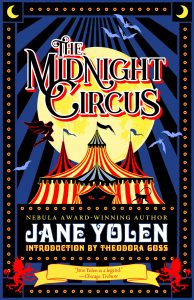 Those initial stories were interesting and fun but didn’t quite touch my heart – although “Dusty Loves” certainly tickled my funny bone a bit. These next ones, however, got a bit closer to the heart of the matter – or at least my heart.
Those initial stories were interesting and fun but didn’t quite touch my heart – although “Dusty Loves” certainly tickled my funny bone a bit. These next ones, however, got a bit closer to the heart of the matter – or at least my heart.
“Dark Seed, Dark Stone” takes the idea of a warrior’s child picking up their weapons to defend their king and country and changes that child from the usual son to a daughter who uses more smarts than skills to defend her homeland. This one isn’t so much a romance as it is a story about duty and purpose – and I liked it better for that. It’s more a romance in the older meaning of the word than the current commercial definition, and I liked it all the better for it.
“Memoirs of a Bottle Djinn” takes the usual Aladdin-type story and gives it a twist that’s been seen before – but does it well. In this case, the savvy but desperate discoverer of the bottle is wary about spending his wish foolishly and without thought. At the same time, as a slave he’s all too able to empathize with the djinn’s plight. So he makes a wish they can both live with, happily ever after.
“Peter in Wonderland” was a delightful surprise. It’s clearly a takeoff on Alice in Wonderland, but shows that the real Alice Liddell still travels to Wonderland even in adulthood, and gives her a fellow-adventurer on her trip that leads to a happy ever after a bit different from the one she experienced in real life.
As much as I enjoyed the above stories, my two favorite entries in this Scarlet Circus were wonderfully entertaining indeed.
“Dragonfield” was wonderful because all of its characters are so very flawed in such human ways, and yet they manage to pull each other up and together to defeat the all too real dragon that is terrorizing the town and achieve a happy ever after that neither of them expected or thought they could ever deserve. It’s a romance and an adventure wrapped into one shiny, magical ball of a story and it’s just lovely.
Last, but not least, because the Matter of Britain can never be least of anything, is “The Sword and the Stone”, a much different story than The Sword in the Stone that you may remember from either the novel by T.H. White (part of The Once and Future King), or the Disney movie or even the episode of the British TV series Merlin. For an inanimate object, Excalibur sure does manage to get around.
This version of the tale is told from Merlin’s point of view, and he’s getting pretty jaded at this point in his long life of meddling with Britain. Arthur himself is also a bit older in this version than the more traditional versions of the tale. While he’s trying his best, he’s clearly better, and happier, at some things than others. To the point where he’d much rather fight the wars than wrangle the peace that he needs to secure and maintain. Merlin cooks up the idea of the sword in the stone to give Arthur’s rule the final stamp of popularity and legitimacy it needs. Arthur thinks it’s all mummery, magic and cheating, which it most definitely is. Until it isn’t.
Which makes the ending just that bit more magical.
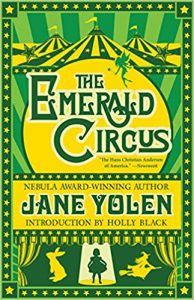 Escape Rating A-: Like most collections, the stories are a bit all over the map. I adored a couple, liked quite a few more, and a small number just missed the mark for me in one way or another – as the above descriptions show. But overall I’m very glad I picked this up, and enjoyed the ways that it played with romances of many types and stripes and definitions. That “love is all there is is all we know of love” doesn’t have to mean that all loves are exactly the same type.
Escape Rating A-: Like most collections, the stories are a bit all over the map. I adored a couple, liked quite a few more, and a small number just missed the mark for me in one way or another – as the above descriptions show. But overall I’m very glad I picked this up, and enjoyed the ways that it played with romances of many types and stripes and definitions. That “love is all there is is all we know of love” doesn’t have to mean that all loves are exactly the same type.
The author has published three previous collections in a similar vein to this one, not necessarily romances but rather whole entire circuses of fractured and reinterpreted fairy tales like How to Fracture a Fairy Tale, The Midnight Circus and The Emerald Circus. I’m sure I’ll be visiting those circuses the next time I’m looking for familiar tales with just a bit of a twist in their tails.



















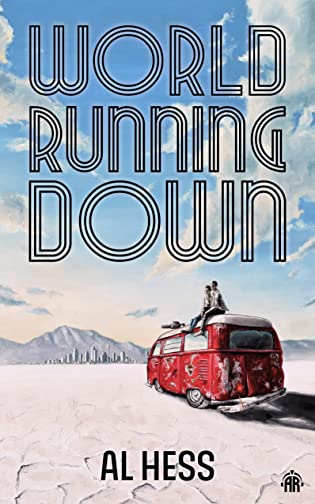 World Running Down by
World Running Down by 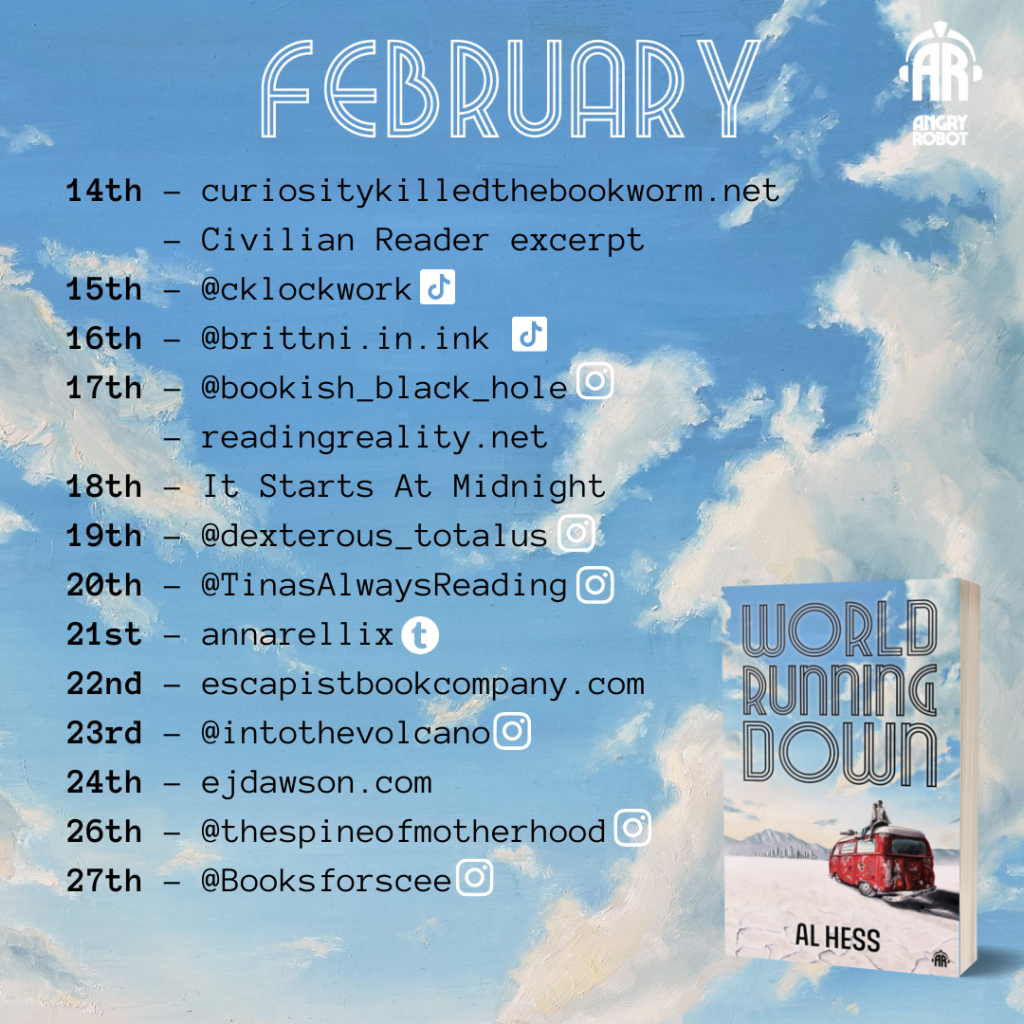 FEBRUARY
FEBRUARY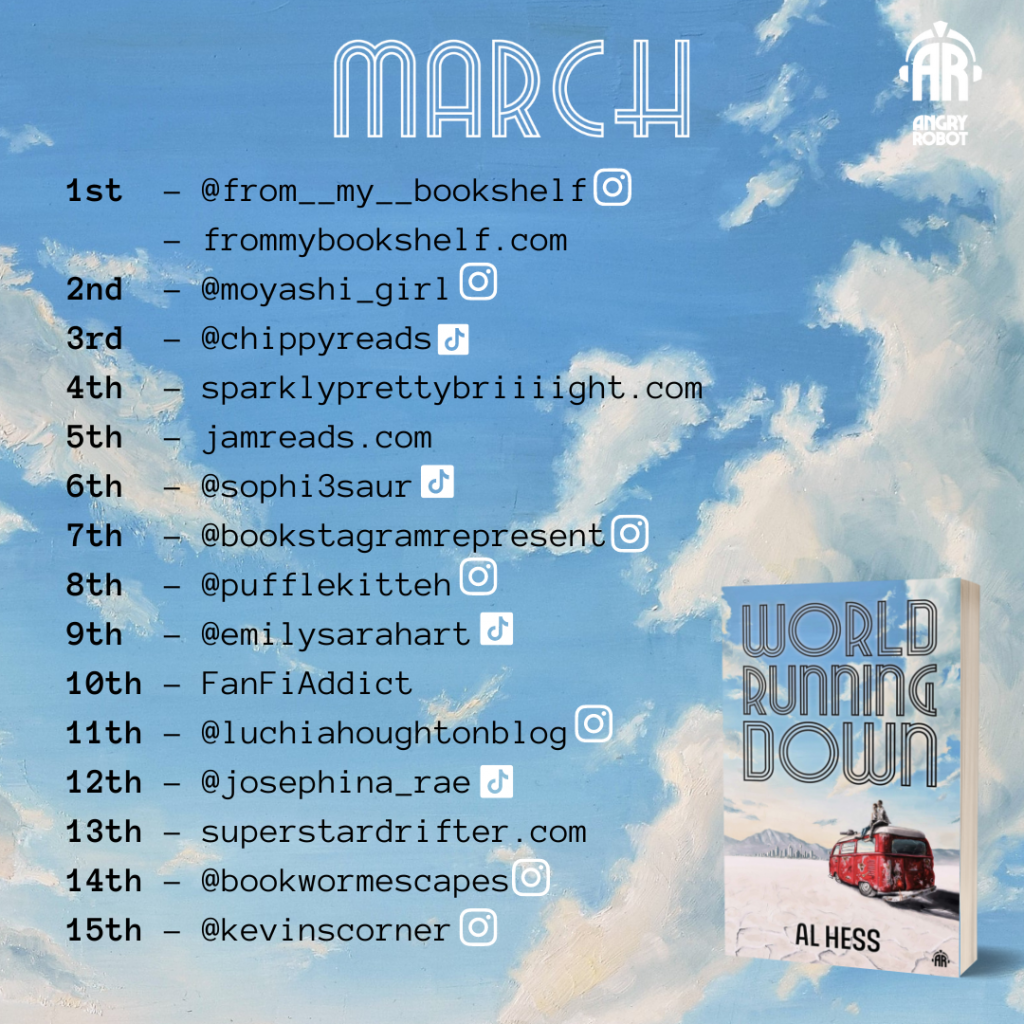 MARCH
MARCH
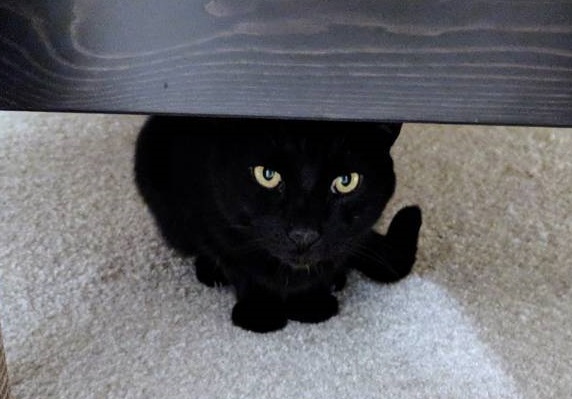
 Junkyard War (Shining Smith #3) by
Junkyard War (Shining Smith #3) by 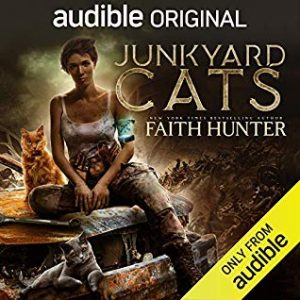 But Shining is not the only human queen, because every true hero – especially if that’s not remotely what they want to be – creates their own archenemy – or the other way around. Clarisse Warhammer targeted Shining all the way back in
But Shining is not the only human queen, because every true hero – especially if that’s not remotely what they want to be – creates their own archenemy – or the other way around. Clarisse Warhammer targeted Shining all the way back in 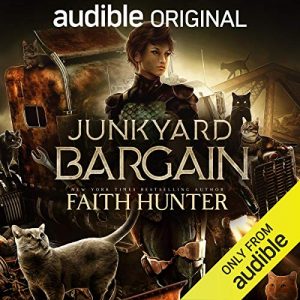 Which means two things. First, the books pile layer upon layer building Shining’s world, so you really need to start at the beginning in
Which means two things. First, the books pile layer upon layer building Shining’s world, so you really need to start at the beginning in  The Scarlet Circus by
The Scarlet Circus by  This ended up being my Valentine’s Day review because, to paraphrase the author’s forward just a bit, while the stories contained within are not “Romances” with a capital R, each story does contain a romantic element – even if that element is not the center of the story and seldom results in anything like a happy ever after.
This ended up being my Valentine’s Day review because, to paraphrase the author’s forward just a bit, while the stories contained within are not “Romances” with a capital R, each story does contain a romantic element – even if that element is not the center of the story and seldom results in anything like a happy ever after. Those initial stories were interesting and fun but didn’t quite touch my heart – although “Dusty Loves” certainly tickled my funny bone a bit. These next ones, however, got a bit closer to the heart of the matter – or at least my heart.
Those initial stories were interesting and fun but didn’t quite touch my heart – although “Dusty Loves” certainly tickled my funny bone a bit. These next ones, however, got a bit closer to the heart of the matter – or at least my heart. Escape Rating A-: Like most collections, the stories are a bit all over the map. I adored a couple, liked quite a few more, and a small number just missed the mark for me in one way or another – as the above descriptions show. But overall I’m very glad I picked this up, and enjoyed the ways that it played with romances of many types and stripes and definitions. That “love is all there is is all we know of love” doesn’t have to mean that all loves are exactly the same type.
Escape Rating A-: Like most collections, the stories are a bit all over the map. I adored a couple, liked quite a few more, and a small number just missed the mark for me in one way or another – as the above descriptions show. But overall I’m very glad I picked this up, and enjoyed the ways that it played with romances of many types and stripes and definitions. That “love is all there is is all we know of love” doesn’t have to mean that all loves are exactly the same type.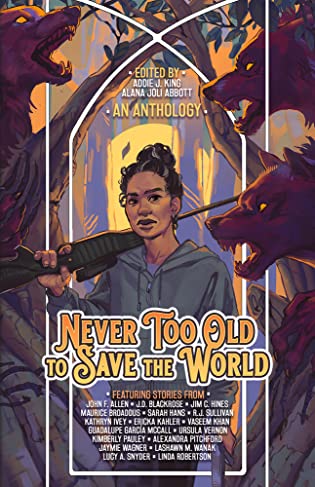 Never Too Old to Save the World: A Midlife Calling Anthology by
Never Too Old to Save the World: A Midlife Calling Anthology by 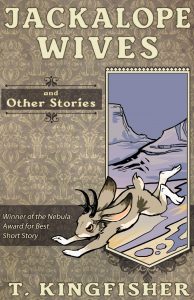 My favorite fantasy story is “Jackalope Wives” by Ursula Vernon – who also writes marvelously fantastic fantasy and horror as T. Kingfisher. “Jackalope Wives” is the only story in the book that has been previously published, originally in
My favorite fantasy story is “Jackalope Wives” by Ursula Vernon – who also writes marvelously fantastic fantasy and horror as T. Kingfisher. “Jackalope Wives” is the only story in the book that has been previously published, originally in 

 Current Giveaways:
Current Giveaways: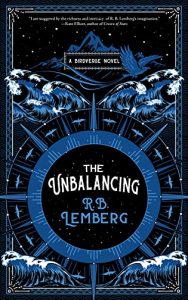 Blog Recap:
Blog Recap: Coming This Week:
Coming This Week:







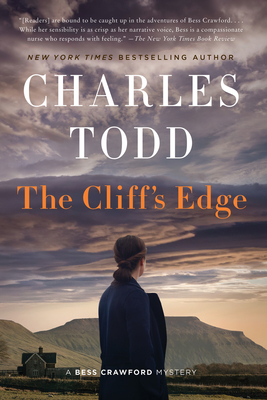 The Cliff's Edge (Bess Crawford #13) by
The Cliff's Edge (Bess Crawford #13) by 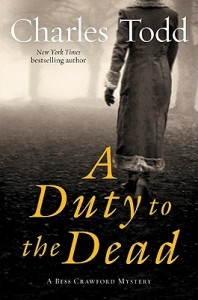 The cliff’s edge of the title is both literal and figurative in this 13th entry in the
The cliff’s edge of the title is both literal and figurative in this 13th entry in the 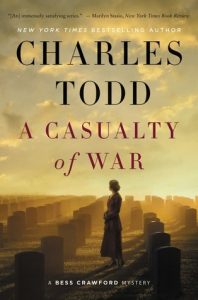 Escape Rating B-: As much as I have enjoyed this series, I believe that it is time for it to come to an end unless it makes a major change in direction. Because Bess has been in limbo for several entries now – at least since book 10,
Escape Rating B-: As much as I have enjoyed this series, I believe that it is time for it to come to an end unless it makes a major change in direction. Because Bess has been in limbo for several entries now – at least since book 10,  So Bess is in Yorkshire in the midst of this case, which is quite a muddle that doesn’t seem much clearer at its end. Not that the cause of the whole thing isn’t found, but rather that the solution isn’t terribly cathartic and doesn’t seem to resolve much of the surrounding tension.
So Bess is in Yorkshire in the midst of this case, which is quite a muddle that doesn’t seem much clearer at its end. Not that the cause of the whole thing isn’t found, but rather that the solution isn’t terribly cathartic and doesn’t seem to resolve much of the surrounding tension.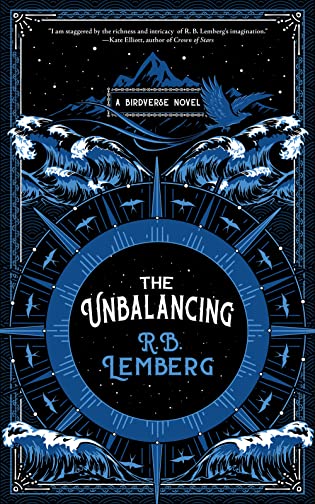 The Unbalancing by
The Unbalancing by 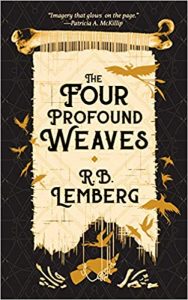 Escape Rating A: I enjoyed my introduction to the
Escape Rating A: I enjoyed my introduction to the 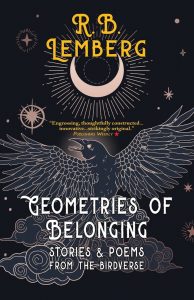 What gives this story its oomph – and lots of it – is the race to heal the star and save the islands. That the effort fails seems like it would be one hell of a downer – but it’s not. What makes the story rise in the end is the acknowledgement that the land, though beautiful, is not important. It’s the people that made the islands, and they’ll find a new place that they will make just as beautiful and fruitful, because they are bringing both the heart of Gelle-Gau and the heart of their beleaguered star along with them.
What gives this story its oomph – and lots of it – is the race to heal the star and save the islands. That the effort fails seems like it would be one hell of a downer – but it’s not. What makes the story rise in the end is the acknowledgement that the land, though beautiful, is not important. It’s the people that made the islands, and they’ll find a new place that they will make just as beautiful and fruitful, because they are bringing both the heart of Gelle-Gau and the heart of their beleaguered star along with them.